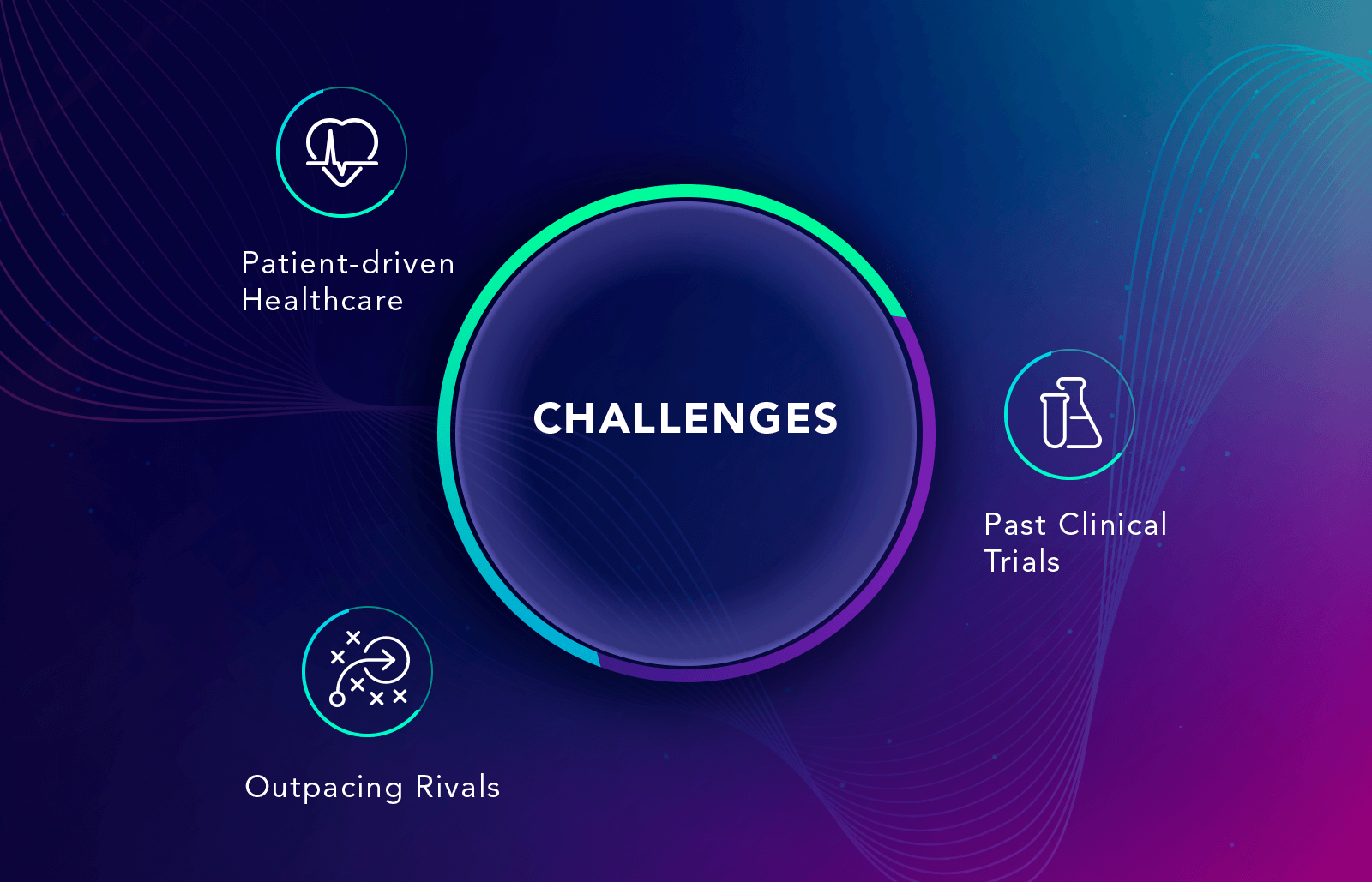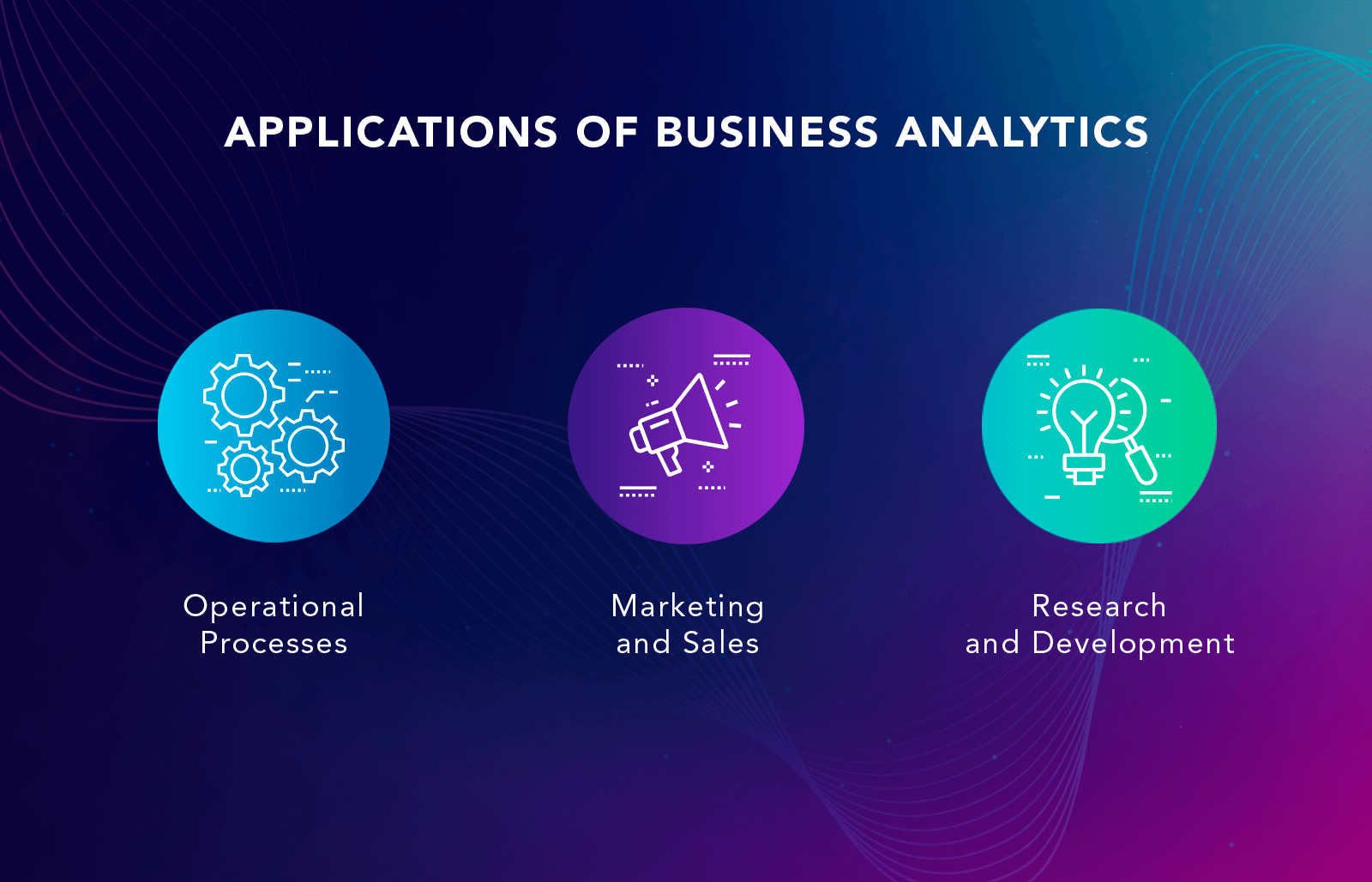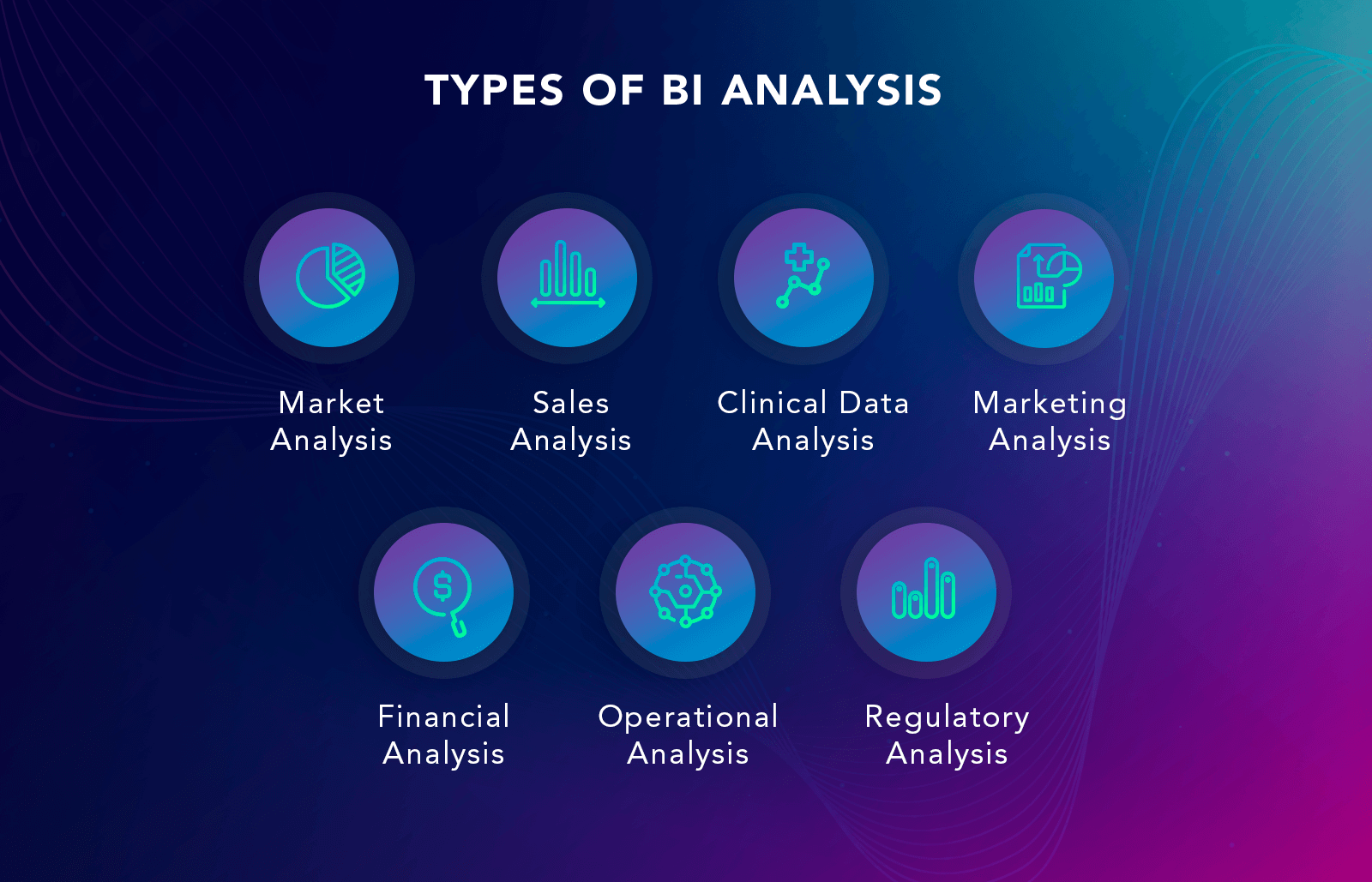The pharmaceutical industry and life science are more and more focused on state-of-the-art technologies based on advanced pharma data analysis. We live in the post-data era – the time when huge amounts of data have been already produced, and the current task is to process them for a more accurate perception of the pharmaceutical market, as well as companies’ internal processes and ongoing clinical trials.
Utilizing advanced tools, such as BI services, Artificial Intelligence, or Augmented Analytics in pharma, is the key to success in this business that is basically based on data generation.
Data Science for Pharma
Business Intelligence solutions and Pharma Analytics systems are actively applied by pharma companies to better harness valuable data, identifying the most suitable candidates for potential drugs.
According to the Worldwide Health Industry 2020 Predictions report, IDC professionals claim that the next decade will be defined by healthcare data and the technologies needed to harness them.
Accenture and IDC Health Insights conducted a survey across 126 pharmaceutical and biotechnology leading companies from the United States and the United Kingdom and found out that most surveyed enterprises have a strong consensus about the importance of data.
Challenges in the Pharma Industry
Developing a pharmaceutical product requires much effort, which self-evidently entails many challenges. The major of them is related to constantly produced data.
Patient-Driven Healthcare
The influx of data generated by consumer-based health devices, namely wearable gadgets, allows drug companies to directly collaborate with customers, receiving from them important data related to reactions to particular drug elements or general health conditions. However, to gain these insights, pharmaceutical companies need to process and analyze huge amounts of constantly growing data in real time.
Past Clinical Trials
Results of past clinical trials and tests are very important for ongoing and future ones. However, combing through to find valuable insight into patients’ reactions to a particular drug, adverse effects they might experience, or the number of patients enrolled in the trial – is a very challenging and difficult process, especially when performed manually.
Outpacing Rivals
Before releasing a new drug product or pharmaceutical research, companies need to be aware of the market situation in their sphere / However, the challenging part lies in the fact that pharmaceutical companies constantly release new products and perform new trials, which are difficult to keep track of. The answer is Business Intelligence.

Business Intelligence and Big Data
Business Intelligence (BI) software is a new cutting-edge pharma big data solution that provides real-time data analysis based on numerous internal and external sources. The extracted information is then visualized interactively through charts, diagrams, and graphics.
Big Data refers to a large number of both structured and unstructured data. McKinsey defines it as “datasets whose size is beyond the ability of typical database software tools to capture, store, manage, and analyze.”
According to the McKinsey Global Institute:
“…applying big-data strategies to better inform decision making could generate up to $100 billion in value annually across the US health-care system, by optimizing innovation, improving the efficiency of research and clinical trials, and building new tools for physicians, consumers, insurers, and regulators to meet the promise of more individualized approaches.”
The Pharmaceutical Business Intelligence (BI) solution is designed to gather, evaluate, and compare pharma data from multiple sources, allowing companies to operate more efficiently, improve employee productivity, increase revenue as well as enhance their competitive edge. The applications of BI solutions in the pharma industry are far-reaching.
Applications of Business Analytics and Business Intelligence Solutions

Operational Processes
The value of Big Data and advanced pharma analytics solutions allow pharmaceutical enterprises to gain a better view across their vast network. Tracking and analyzing data from supply networks, production levels, and financial transactions allows enterprises to avoid pitfalls and promptly handle occurring problems and challenges. Moreover, BI systems eliminate the need for interdependency within various departments and make it easy for them to retrieve information whenever needed. Users can view and manage data in a simple dashboard environment, which is interactive and easy to understand.
Marketing and Sales
With BI software, pharmaceutical companies can efficiently track sales performance and consumer behavior to control and improve their marketing and sales strategies. BI systems proceed with external data about the market, competitors, and advertising campaigns and efficiently evaluate current trends, market share, revenues, and sales performance. Moreover, this Pharma-Data-powered software can efficiently analyze how fresh products are performing in the market so that companies can take needed measures to boost their market share. Pharmaceutical companies applying BI solutions enhance their marketing and sales performance by giving a better view across the entire industry.
Research and Development
New opportunities emerge in a world where “big pharma” and “big tech” collide. With the advance of business analytics technology, pharmaceutical research, and development (R&D) processes are getting to a new level where data becomes the key to more effective and innovative trials and research. With the ability of BI to analyze huge amounts of structured and unstructured data, visualize processed information, and even make predictions, the pharma industry will create a lot of value from the enhanced use of Big Data and reach a higher level of productivity.
As McKinsey claims in its report:
“Pharmaceutical R&D suffers from declining success rates and a stagnant pipeline. Big data and the analytics that go with it could be a key element of the cure.”
Pharmaceutical R&D can use BI tools in three ways: analysis of past trials, support for current clinical trials, and predictive modeling. BI can handle and visualize the existing results and all available information about past trials that can be useful for current or future ones. BI software also uses operational data from clinical trials for similar drugs or similar practices.
Based on a patient’s genetic data, a BI-driven program can evaluate the risks involved with certain patients. Another area where BI proves its effectiveness is predictive modeling. An advanced BI can predict patients’ likelihood to respond to particular drugs, forecast their adverse effects, as well as recommend the needed number of people to be enrolled in a trial.
Types of BI Analysis for Pharma

- Market analysis
Provided by BI, market analysis proceeds external market data from Insight Health, IMS, and WHO, and data from various internet sources to provide pharmaceutical companies with a better view of the entire industry.
- Sales Analysis
Sales analysis encompasses sales performance monitoring and consumer behavior tracking to identify seasonal demand, slow-moving products, outliers, and much more.
- Marketing Analysis
BI marketing analysis helps companies to get a better view of the effectiveness of their marketing campaigns.
- Financial Analysis
Analyzing and visualizing financial information allows pharmaceutical companies to maintain expenses and create efficiency.
- Operational Analysis
The operational analysis enables pharma companies to get valuable information on business operations. BI software can identify general areas that companies need to improve.
- Clinical Data Analysis
Clinical Data Analysis works with available information from clinical trials, extracting valuable insights and visualizing them in an interactive way.
- Regulatory Analysis
By constantly tracking regulatory compliance the BI regulatory analysis helps pharmaceutical companies to adhere to certain regulatory requirements, for instance, HIPAA.

BI Services for the Operational Analysis Case
Using a Power BI tool, Softengi has helped MicroTechniX, a company specializing in the automation of laboratory processes, to visualize their product usage based on the company database. The BI system, on par with pharma analytics, provides all information in the form of diagrams and graphs, thus facilitating the process of comprehension. The Power BI tool enabled the system to automatically update reports if something is altered in the database.
The Softengi BI system regularly generates seven reports for MicroTechniX in different areas of business. In particular, the software visualizes how many unique users have accessed the product or how many new users have emerged a day. As a result, the company more clearly monitors its internal and external business processes.

Final Word
The key to company success in the pharma industry is the efficient utilization of Big Data. A Business Intelligence solution can efficiently process and analyze pharma data, providing insights with in-depth analytical reports, interactive dashboards, and user-friendly graphs.
In order to successfully implement a business intelligence system, a company needs to approach an experienced IT vendor. Softengi, with its high experience in Big Data, Business Intelligence, and Artificial Intelligence, enables companies to efficiently handle pharma data from multiple sources, transforming analyzed information into valuable knowledge.




